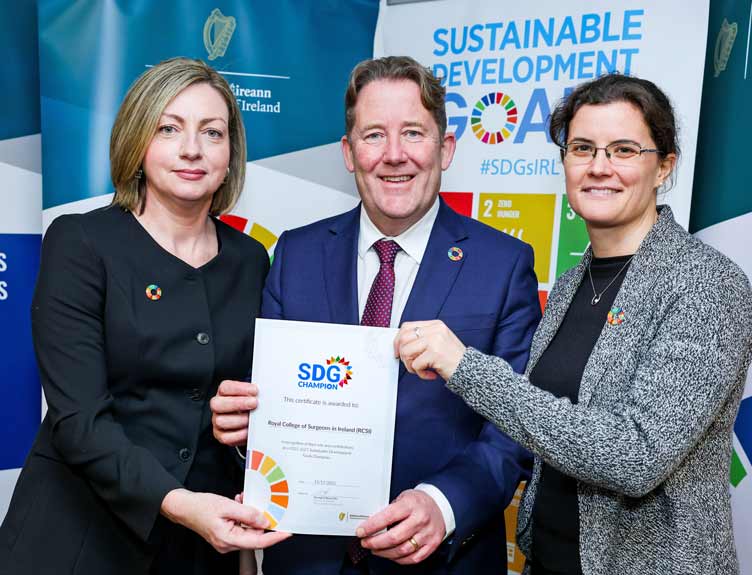Research Day 2014 highlights the latest advances in health research
The latest advances in biomedical sciences, clinical research, population health sciences and healthcare delivery are just some of the topics featured in studies which will be presented at the annual RCSI Research Day 2014 taking place today.
More than 300 researchers are expected to attend this annual forum which provides RCSI scientists with the opportunity to showcase their most recent research findings and emphasises the importance of research within the College.
The emphasis for the day is on oral and poster presentations by investigators early in their career, post-doctoral fellows, post-graduate and undergraduate scholars and academic staff. All oral presentations and poster presentations will be judged and awards will be presented at a ceremony later this evening.
The Annual John J. Ryan Distinguished Guest Lecture will be delivered by Professor Sir Stephen O'Rahilly who will speak on the subject of ‘Human metabolic disease: lessons from the extremes’.
The lecture will explore his research into the genetic causes of extreme obesity and insulin resistance which have provided new insights into the physiology of energy balance and metabolism.
A native of Dublin, Professor O'Rahilly is Professor of Clinical Biochemistry and Medicine the University of Cambridge. He is the Co-Director of the Wellcome Trust-MRC Institute of Metabolic Science and Director of the MRC Metabolic Diseases Unit.
Professor Ray Stallings, Director of Research at RCSI said: “RCSI is committed to supporting and nurturing an active research community and the annual Research Day is a vital platform for highlighting the scope of research taking place across the different disciplines in the College. As one of Ireland's premier research institutions, exposure to world-class research begins at undergraduate level right up to the highest-calibre research-active academic staff, enabling us to train new generations of researchers and clinician scientists.”



